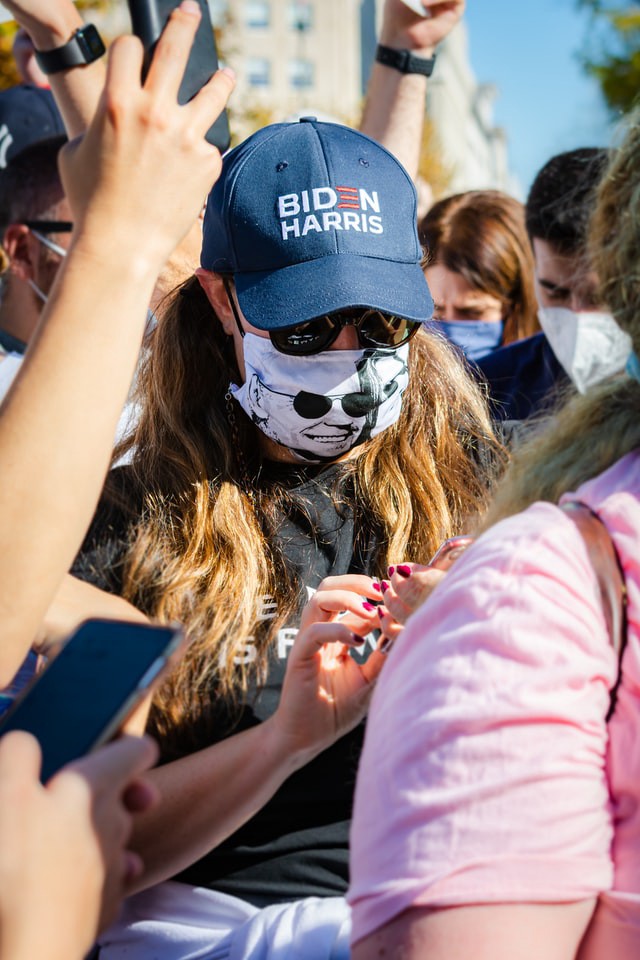The Biden Administration’s One-Year Progress on Cancer
Few administrations have as close and personal a connection with cancer as President Joe Biden’s. As Vice President in 2015, Biden lost his son, Beau, to brain cancer. A year later, he took the lead on a cancer task force with the goal of dramatically accelerating cancer research. The astronomically high expectations of that effort, which was somehow fitting dubbed the National Cancer Moonshot Initiative, made progress but saw dramatics regression when the ensuing administration made access to care more difficult for millions of Americans.*
The current VP, Kamala Harris, lived with cancer as a part of her daily life. Her mother, Shymala Gopalan, was a breast cancer researcher. Gopalan died of colorectal cancer in 2009.
Both Biden and Harris made mention of cancer research, treatment, and access to care during their respective presidential campaigns. Once in office, Biden nominated a number of celebrated and reputable experts to important government roles. Many of those nominees were noted as having worked in oncology or in closely related fields. Doctor Eric Lander, for example, is a geneticist with a robust body of work on cancer genomics.
Cancer Legislation Under the Biden Administration
Affordable Care Act Subsidies
Inheriting a global pandemic, cancer was never going to make the top of the list for the incoming administration. It did find its way into marquee legislation, including the American Rescue Plan Act. Passed in March, most of the medical elements of the Plan were focused on COVID-19 treatments and supporting testing, access to medical equipment like ventilators, and standardizing treatments and therapeutics.
Some parts of the Plan did have an impact on wider healthcare concerns, including some that assist cancer patients. One of the most important parts of the bill allowed for new subsidies for families purchasing insurance through Affordable Care Act exchanges. Families whose incomes are up to 400% higher than the previous requirement for subsidies became eligible. This was an especially important time for such an adjustment, with millions of Americans suddenly unemployed and without work-assisted plans. Many were also applying to these plans with tax returns from jobs they no longer held and reported incomes they no longer earned.
Increased Funding for Medicaid
The same legislation also increased Medicaid funds and created additional financial incentives to expand their existing Medicaid programs. This effort will have reduced the number of unemployed Americans and offer more individuals access to early screening services at no out-of-pocket costs. This funding adjustment also extended certain kinds of paid sick leaves, something that is of particular benefit to individuals with cancer and their families.
Changes to Pharmaceutical Policy
More comprehensive drug policy changes haven’t been on the table for the Biden Administration. While mentioned frequently by both parties and most candidates, drug pricing legislation has made it to a vote in either chamber of Congress. However, the HHS has made some moves.
Early in 2021, HHS created new requirements to ensure that all Medicaid plans include anticancer drugs as a part of their universally covered “protected class”.
While one party certainly appears much more ready to invest in healthcare and cancer research specifically, both have the opportunity to make a real investment in the lives of Americans by putting access to care first. Just some of the ways this can happen include:
· Tying the amount of federal spending on healthcare to a percentage of the national budget
· Setting a set price for basic cancer screening services and making them free for all Americans on an annual and age-based basis
· Expanding healthcare coverage to families making between 10–20% of the current poverty line
· Capping insurance premiums on all private plans on a per-person basis
· Make healthcare for all kids under the age of 18 covered by a combination of state and federal funding
*To underscore the importance of care, Harvard School of Public Health conducted research that correlated how the loss of insurance impacted excess deaths. The report found that the number of Americans without health insurance increased by 2.3 million people and that loss of care contributed to at least 3,399 deaths and as many as 25,180, between 2016 and 2019. Those figures do not include any deaths from the start of the 2020 COVID-19 pandemic.
The Biden Administration’s One-Year Progress on Cancer was originally published in Less Cancer Journal on Medium, where people are continuing the conversation by highlighting and responding to this story.


Leave A Comment
You must be logged in to post a comment.